Earlier this year, The AFR posted the following chart showing the enormous growth in Australia’s terms of trade over the past 20 years:
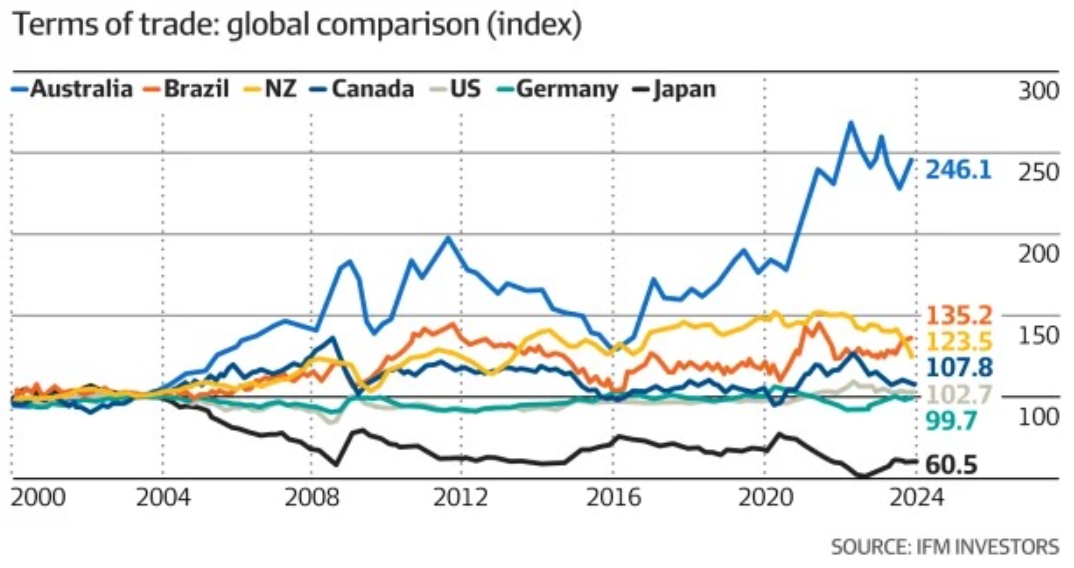
The AFR’s John Kehoe noted that “compared to other countries”, Australia’s terms-of-trade “has increased by almost two and a half times, or 146% since the turn of the century”.
The following chart from independent economist Tarric Brooker tells a similar story.
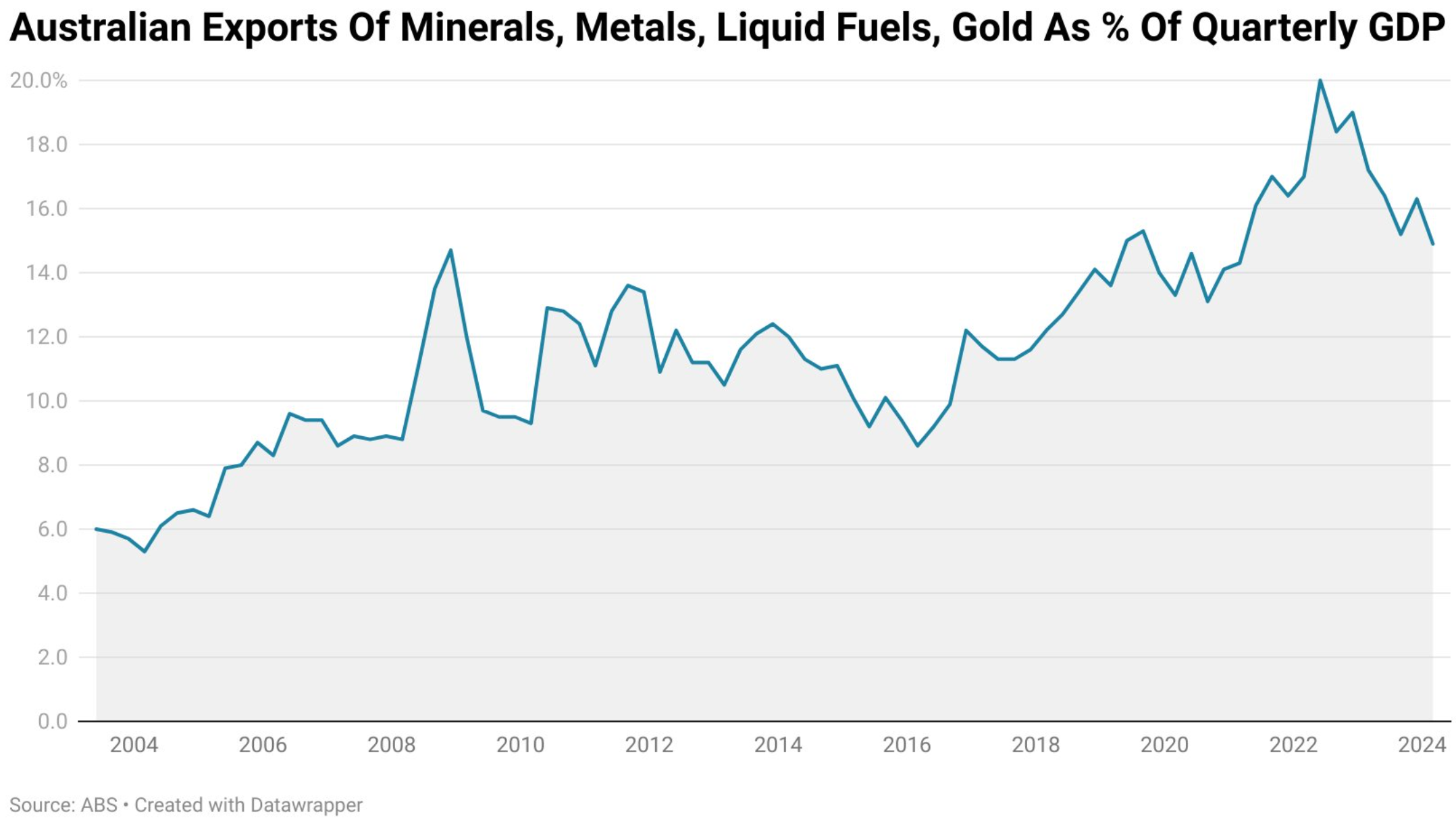
Source: Tarric Brooker
Brooker notes that “between Q3 2003 and Q2 2022… resources exports went from 5.9% of GDP to 14.9% (peaking at 20%)”.
Economist Chris Richardson estimated that since 2000, the terms of trade boost increased Australia’s tax receipts by $100 billion per year by 2024, mostly through corporate taxes.
While this windfall has clearly benefited the federal budget, imagine the gains that Australia could have enjoyed if we had a true resource tax mechanism in place, as Norway has.
Consider Australian natural gas. Until recently, Australia was the world’s largest LNG exporter (currently ranked third after the US and Qatar).
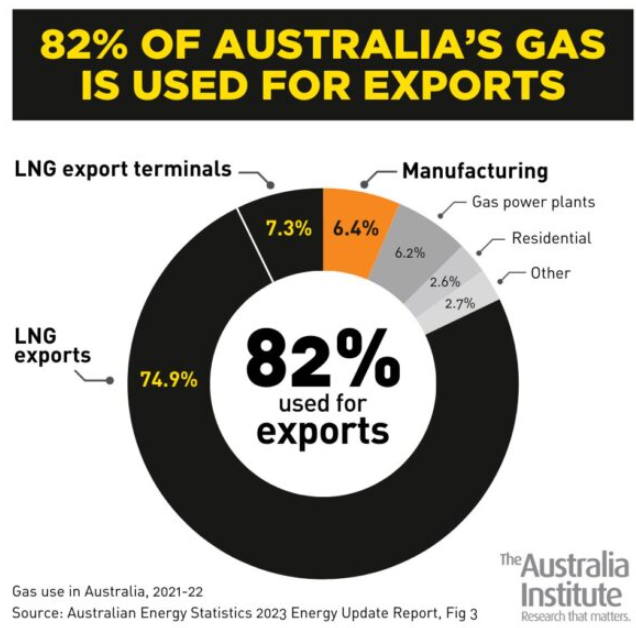
Almost all of Australia’s natural gas is exported, creating an artificial local gas scarcity and extremely high gas and electricity prices on the East Coast, where there is no domestic reservation.
The boom in LNG exports, which reflects Australia’s rising terms of trade, has resulted in large profits for foreign-owned oil and gas companies. However, Australia’s tax receipts from this boom have been lacklustre.
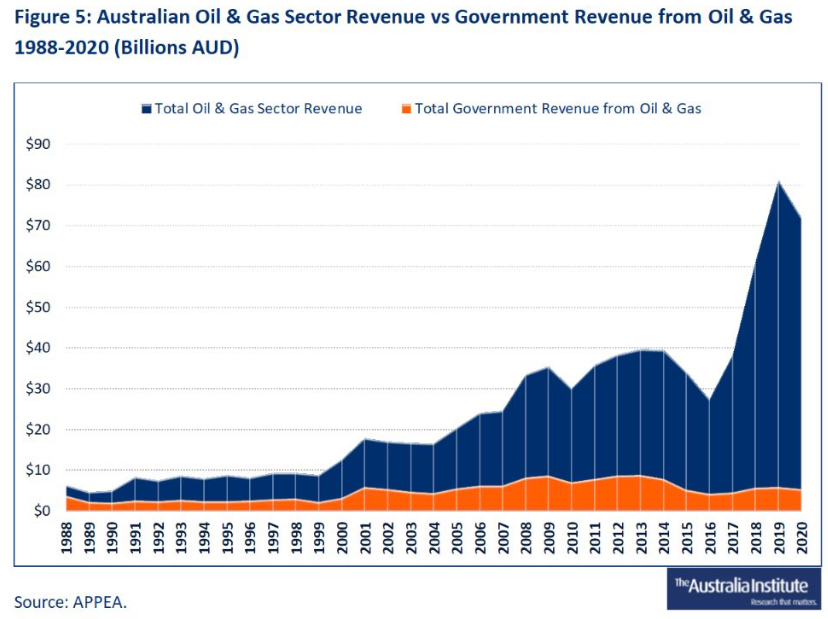
Now compare us to Norway, which taxes its oil and gas sector at almost 80%. Norway’s tax receipts from the oil and gas sector have climbed in parallel with its export income.
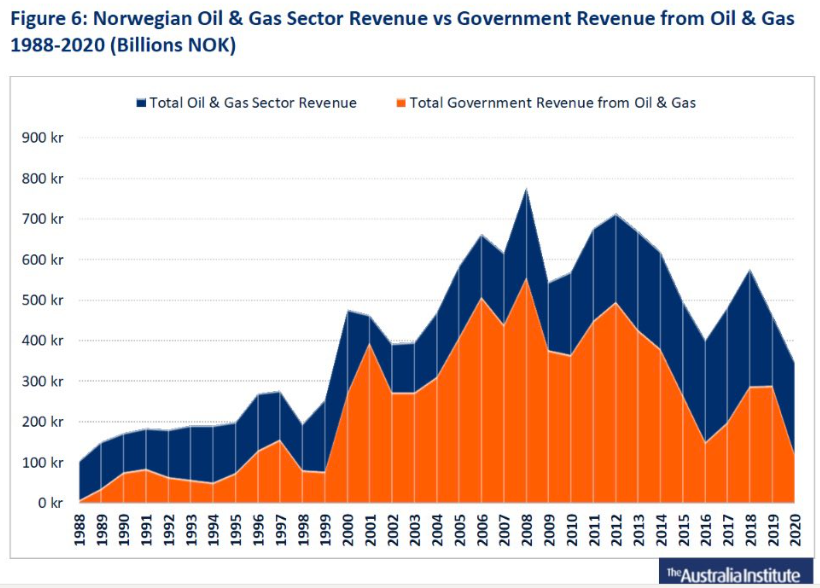
Norway has put its oil and gas bonanza in the world’s largest sovereign wealth fund, which is valued at almost US$290,000 per Norwegian person.
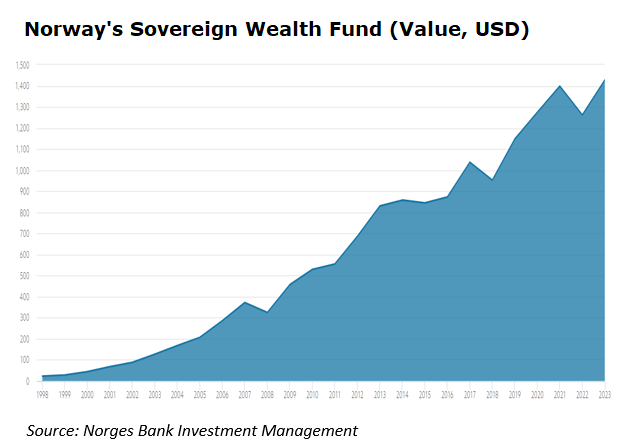
Norway’s oil and gas wealth has made Norwegians the world’s richest people, a distinction that Australia could have earned if we had properly taxed our resources.
Instead, we did the reverse, taxing our resources lightly. We then increased the country’s population rapidly through immigration, diluting our mineral resources.
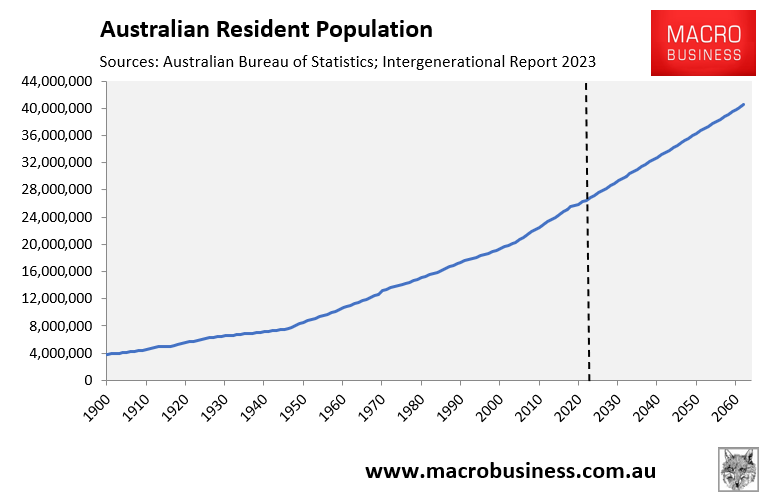
In his latest masterpiece on Australia’s political economy, Matt Barrie revealed how Qataris have also gained from their country’s LNG exports in ways that Australians can only dream about:
Qatar’s largest export by far is LNG, the same volume as Australia.
Yet Qatar generates enough wealth from this trade that residents pay zero income tax, zero property tax, zero corporate income tax, have free healthcare, free education, have subsidised housing and plentiful access to cheap electricity and petrol.
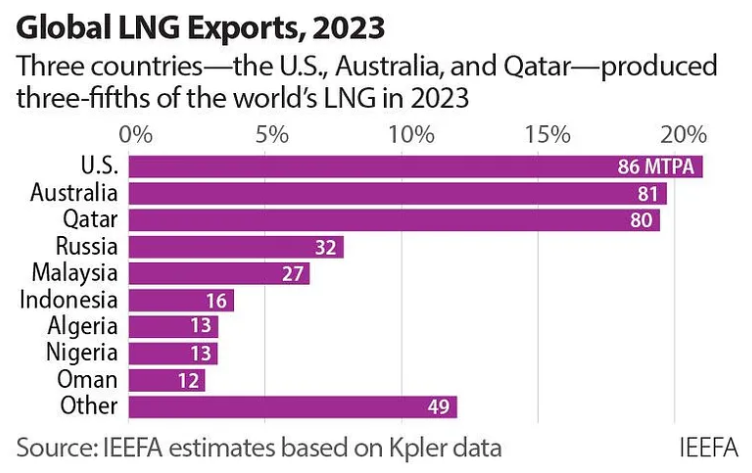
Source: John Hopkins
Similarly, Norway, another resource-rich nation, has leveraged its oil wealth to create a sovereign wealth fund worth over $1 trillion, ensuring long-term prosperity for its citizens. Australia’s failure to create comparable benefits from its resources highlights a critical policy shortfall.
In Australia, most of our export facilities pay no royalties at all to the state or federal government…
Australians currently pay $11.67/Gj wholesale. The Americans pay $2.34/Gj, and Qataris even less. But that’s only because the government stepped in and forced a $12 price cap as prices got to almost $50 in last year.
In June, the Australian energy market regulator, AEMO, warned that the east coast could run out of gas in winter.
Despite being a gas superpower, what Australia does is export it to China and Japan, who don’t actually need it and resell it. China resells about a third of what we need domestically. Half the gas we sell to Japan is resold.
The bottom line is that Australia should be swimming in money.
Instead, we have impoverished ourselves by creating an artificial gas shortage, raising domestic gas and electricity prices. We have also diluted the country’s mineral resources through mass immigration.
We are not a serious country.

